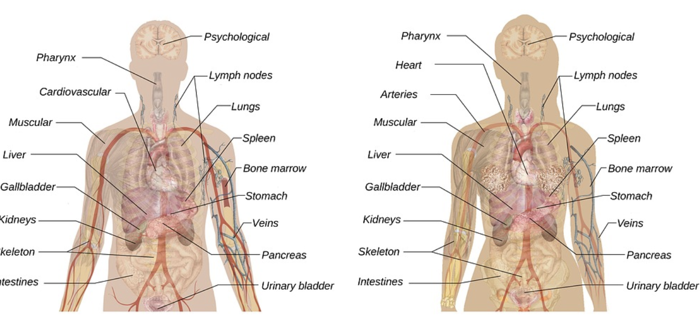What Is Heat Illness?
There Are A Few Different Types of Heat Related Illness
Our body has its own heating and cooling system to help regulate our body’s temperature. When the body needs to cool off it starts sweating, so that the sweat may evaporate and help to lower the body’s internal temperature. If your body is unable to produce enough sweat to keep up with the high temperatures, it is likely that a heat related illness will begin to set in.
- heat rash or prickly heat
- heat cramps
- heat exhaustion
- heat stroke
Symptoms
While heat exhaustion includes many symptoms ranging from extreme thirst, to nausea/vomiting,and cramping; heat cramps just affect large muscles, causing involuntary spasms. Typically heat exhaustion happens when an individual works or exercises in high temperatures, and the body cannot sweat enough to cool the body. The line between heat exhaustion and heat stroke is a bit blurry. There is no specific point which differentiates between heat exhaustion and heat stroke, but if an individual begins to experience a change in their mental state such as confusion or if they have stopped sweating and their skin is dry, it can be considered a warning sign of heat stroke. Risks related to heat stroke can be as serious as seizure or coma.
If you begin to experience symptoms of heat exhaustion including-
- dizziness
- nausea or vomiting
- muscle spasms
- headache
it is important to cool your body to reduce the chance of advancing to heat stroke.
If you are unable to cool your body within 15 minutes please seek medical attention. When emergency attention is delayed, and treatment is not sought immediately the mortality rate greatly increases.
Who is at risk?
- Infants/young children
- Elderly
- People taking certain medications which reduces the ability to sweat including antidepressants, antipsychotics, and tranquilizers
- The overweight or obese
- People below the poverty line who do not have access to air conditioning
Heat exhaustion can affect anyone, but the list above shows people who are more likely to have a heat related health issue.
Prevention
- If outdoors for an extended time try to stay in the shade as much as possible.
- Take many breaks from the heat, returning to an air conditioned space.
- Use cool packs or ice towels to reduce your body temperature.
- Drink plenty of clear fluids such as water or sports drinks.
Your body can cool itself, but it is important to take good care of it, especially in the heat of the summer.



Leave a Comment